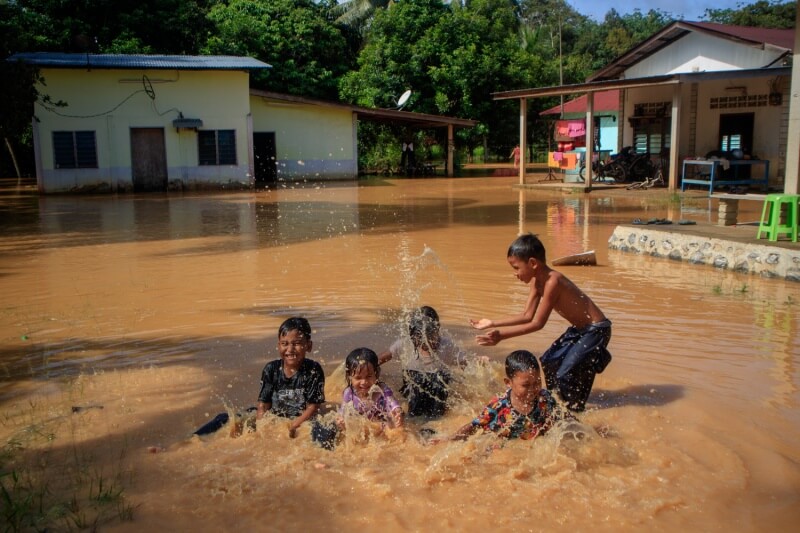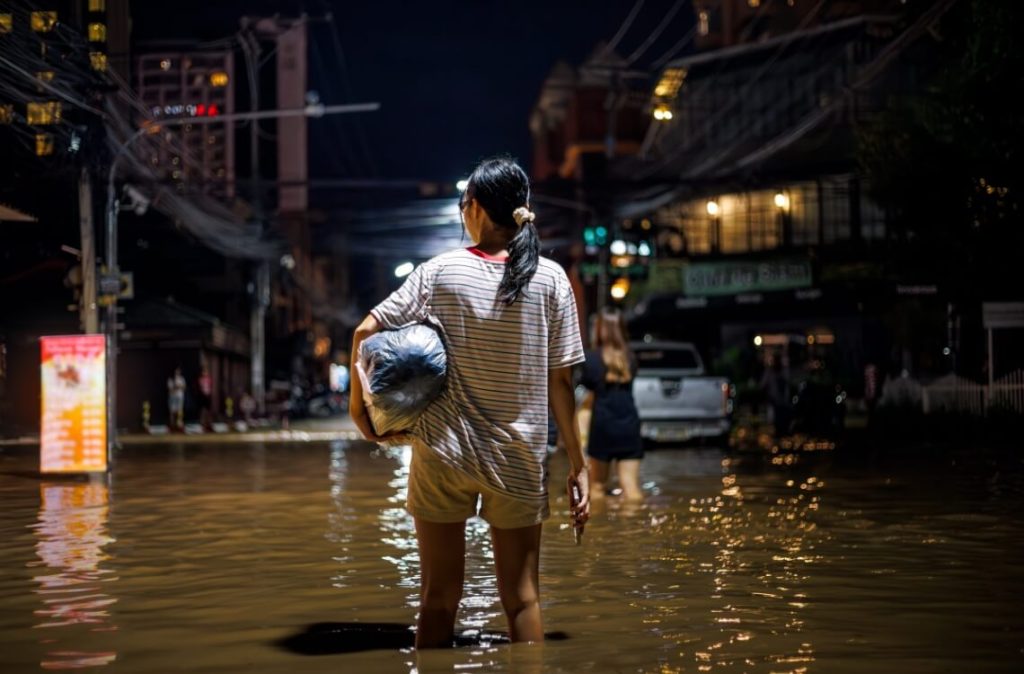Flooding in Malaysia is a recurring challenge that disrupts lives, displaces families, and puts our children at unique risks.
For many parents, navigating these crises feels like learning on the go.
While immediate safety is the priority, understanding long-term strategies can make a significant difference in ensuring our children’s wellbeing.
The Dangers of Floodwaters: What Every Parent Should Know

Floodwaters might seem unavoidable during such times, and for children, they may often appear as an enticing playground.
However, these waters are far from harmless.
Additionally, hidden sharp objects or strong currents pose physical dangers.
For parents, it’s crucial to recognise these risks and take steps to minimise harm where possible:
- Avoid Contact with Floodwaters: When feasible, limit children’s exposure to contaminated waters. If unavoidable, ensure they wear protective boots or shoes.
- Promote Basic Hygiene: Even during displacement, prioritise handwashing with clean water or hand sanitizers (whichever available) to reduce the risk of disease.
- Be Alert to Symptoms: Know the warning signs of waterborne illnesses, such as fever or stomach pain, and seek medical attention when needed.
Learning to Cope: Safer Alternatives for Kids
While keeping children away from floodwaters can feel impossible, especially in flood prone areas, finding alternative ways to keep them engaged is vital.
Create activities that are safe, even in evacuation centres, such as storytelling, drawing, or simple games that don’t require a lot of materials.
Remember, every effort you make now contributes to their safety and long term health.
Keeping Education Afloat During Floods
Flooding doesn’t just disrupt lives, it halts education.
School closures can leave children without the structure and learning they need to thrive.
In recent years, government programs and community initiatives have begun addressing this via online learning resources provided by the government, universities and NGOs.
This has helped many young children and university students stay connected to education during disasters.
Temporary classrooms have been established in schools located in unaffected areas, offering displaced children a structured environment to continue their studies during the disruption.
Hidden Casualty: Emotional Wellbeing
Floods are traumatic, and children often carry the emotional scars long after the waters subside.
Parents may notice signs of distress, such as withdrawal, increased irritability and heighten tantrums in little ones.
Providing emotional support in these times is as crucial as attending to physical needs.
- Reassurance: Keep communication open and let your children express their fears or anxieties.
- Routine: Try to establish a sense of normalcy, even in evacuation centres, by maintaining daily habits or routines.
- Community Support: Tap into available resources, such as counselors or mental health volunteers, who often work in evacuation centres to support displaced families.
Flood Season: Preparing for the Future
Floods are a reality in Malaysia, but their impact can be mitigated through preparedness.
Communities and families can work together to reduce risks and build resilience:
- First-Aid Training: Knowing basic first aid can save lives in emergencies.
- Flood Drills: Schools and communities should regularly practice evacuation procedures to ensure children and parents know what to do during a flood.
- Disaster Kits: Prepare a kit with essentials like clean water, dry clothes, flashlights, and basic medicines to ease the challenges during displacement.
By learning as we go and leaning on the support of our communities, we can turn these moments of adversity into opportunities to grow stronger together.
Disclaimer: The information provided in this article is for informational purposes only and should not be considered as medical advice from Motherhood. For any health-related concerns, it is advisable to consult with a qualified healthcare professional or medical practitioner.
For more insightful stories and fun recipes, stay tuned to Motherhood Story!
